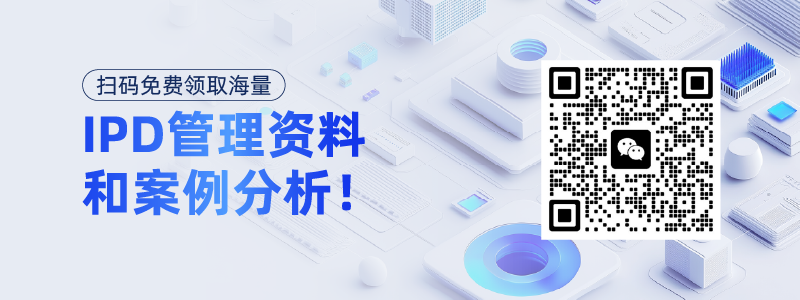The Importance of Knowledge Management in IPD
Knowledge management is integral to Huawei's IPD process because it ensures that the organization can effectively capture, store, and utilize the vast amounts of information generated during the product development lifecycle. In a rapidly evolving technological landscape, where products and services need to be developed at an unprecedented pace, knowledge management enables Huawei to stay ahead of the curve. By systematically managing knowledge, Huawei can avoid duplication of efforts, reduce time-to-market, and enhance the quality of its products. Moreover, knowledge management fosters a culture of continuous learning and improvement, where employees are encouraged to share their insights and experiences, leading to more innovative and efficient product development.
Another critical aspect of knowledge management in IPD is its role in decision-making. The IPD process involves multiple stakeholders, from engineers and designers to marketing and sales teams. Effective knowledge management ensures that all stakeholders have access to the latest and most relevant information, enabling them to make informed decisions. This collaborative approach not only improves the quality of decisions but also aligns the efforts of various teams towards a common goal. In essence, knowledge management in Huawei's IPD process is a cornerstone of its innovation strategy, driving the organization's ability to deliver cutting-edge products and solutions to its customers.
Methodologies and Tools for Knowledge Management
Huawei employs a variety of methodologies and tools to ensure that knowledge management is seamlessly integrated into its IPD process. One of the most effective tools is the use of a centralized knowledge repository, where all relevant information, documents, and best practices are stored. This repository is accessible to all employees involved in the IPD process, allowing them to easily retrieve and contribute knowledge. Additionally, Huawei leverages advanced analytics and machine learning algorithms to analyze the vast amounts of data generated during product development. These tools help identify patterns, trends, and insights that can be used to improve the IPD process and drive innovation.
Collaboration platforms are another critical component of Huawei's knowledge management strategy. These platforms facilitate real-time communication and collaboration among team members, regardless of their physical location. By using tools such as video conferencing, instant messaging, and collaborative document editing, Huawei ensures that knowledge is shared and leveraged effectively throughout the IPD process. Furthermore, these platforms enable the creation of virtual teams, where experts from different departments can come together to solve complex problems and develop new products. This collaborative approach not only enhances the efficiency of the IPD process but also fosters a culture of knowledge sharing and innovation.
In addition to these tools, Huawei also places a strong emphasis on training and development. The organization invests heavily in training programs that equip employees with the skills and knowledge needed to excel in their roles. These programs cover a wide range of topics, from technical skills to leadership and project management. By providing employees with the knowledge and tools they need to succeed, Huawei ensures that they can contribute effectively to the IPD process and drive innovation. Moreover, these training programs encourage employees to continuously update their knowledge and stay abreast of the latest developments in their fields, further enhancing the organization's knowledge management capabilities.
Benefits of Knowledge Management in IPD
The implementation of robust knowledge management practices in Huawei's IPD process has yielded numerous benefits for the organization. One of the most significant advantages is the reduction in time-to-market for new products. By systematically managing knowledge and ensuring that information is readily available to all stakeholders, Huawei can streamline the product development process and bring new products to market more quickly. This agility is crucial in a competitive industry where the ability to innovate and respond to market demands rapidly can mean the difference between success and failure.
Another key benefit of knowledge management in IPD is the improvement in product quality. By leveraging the collective knowledge and expertise of its employees, Huawei can identify and address potential issues early in the development process. This proactive approach to quality assurance not only reduces the likelihood of defects but also enhances the overall reliability and performance of the products. Furthermore, by continuously capturing and analyzing data from previous projects, Huawei can identify best practices and apply them to future projects, leading to incremental improvements in product quality over time.

Knowledge management also plays a crucial role in fostering a culture of innovation within Huawei. By encouraging employees to share their ideas and insights, the organization creates an environment where creativity and innovation can thrive. This culture of knowledge sharing not only drives the development of new products and technologies but also inspires employees to think outside the box and explore new possibilities. As a result, Huawei remains at the forefront of technological advancements, continuously pushing the boundaries of what is possible in the telecommunications and information technology sectors.
Conclusion
In conclusion, knowledge management is a vital component of Huawei's IPD process, driving the organization's ability to innovate, improve, and deliver high-quality products to its customers. By systematically capturing, storing, and leveraging knowledge, Huawei can reduce time-to-market, enhance product quality, and foster a culture of innovation. The implementation of advanced tools and methodologies, such as centralized knowledge repositories, collaboration platforms, and training programs, further strengthens Huawei's knowledge management capabilities. As a result, Huawei continues to lead the industry, setting new standards for excellence and innovation in product development.
FAQ
What is the role of knowledge management in Huawei's IPD process?
Knowledge management plays a critical role in Huawei's IPD process by ensuring that the organization can effectively capture, store, and utilize the vast amounts of information generated during the product development lifecycle. It enables Huawei to stay ahead of the curve, avoid duplication of efforts, reduce time-to-market, and enhance the quality of its products. Additionally, knowledge management fosters a culture of continuous learning and improvement, where employees are encouraged to share their insights and experiences, leading to more innovative and efficient product development.
How does Huawei ensure effective knowledge sharing in its IPD process?
Huawei ensures effective knowledge sharing in its IPD process through the use of various tools and methodologies. This includes a centralized knowledge repository, advanced analytics and machine learning algorithms, collaboration platforms, and comprehensive training programs. These tools facilitate real-time communication and collaboration among team members, enable the creation of virtual teams, and provide employees with the knowledge and tools they need to succeed. By leveraging these resources, Huawei creates an environment where knowledge is shared and leveraged effectively throughout the IPD process.
What are the benefits of knowledge management in Huawei's IPD process?
The benefits of knowledge management in Huawei's IPD process are numerous and far-reaching. They include a reduction in time-to-market for new products, an improvement in product quality, and the fostering of a culture of innovation. By systematically managing knowledge and ensuring that information is readily available to all stakeholders, Huawei can streamline the product development process, identify and address potential issues early, and inspire employees to think creatively and explore new possibilities. These benefits not only enhance the organization's competitiveness but also drive its ability to deliver cutting-edge products and solutions to its customers.
ARTICLE TITLE :Knowledge management practice in Huawei's IPD process ,AUTHOR :ITpmlib

















